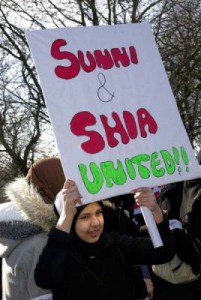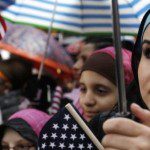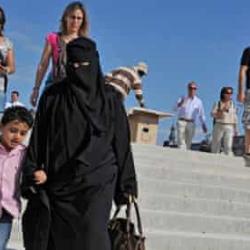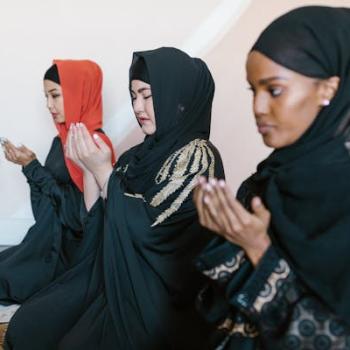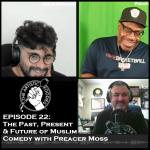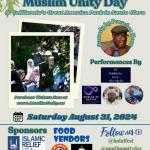There are words to be said that ought to be heard. In the face of the tidal wave of blindness, cruelty and the frenzy of fanaticism that is sweeping the world of Muslims, the different manifestations of this sad situation must be frankly addressed. The most dangerous of these is the widening gap between Shias and Sunnis. A few points must be highlighted:
1. It is irrational. The fact that millions of people are quarrelling about events that took place more than a millennium ago, when the victims and perpetrators have been long within the hands of God for His final and just verdict, and where the crime scene has disappeared — the evidences is non-existent, and the witnesses are long gone.
The Quran says in Surat al-Baqara (2:134): “That was a people that hath passed away. They shall reap the fruit of what they did, and ye of what ye do! Of their merits there is no question in your case!”
This schism is the product of history. People read history in different ways and reach different conclusions, but this should never escalate to the level of fighting and shedding blood.
Shias around the world today are not the same people who were at Karbala, and today’s Sunnis are not the same as those who were at the battle of the “Kamel” or “Siffin.” Sunnis and Shiites today are who they are because of their place of birth. For example, if a person was born in Iran, most probably he/she is a Shia. If he/she was born in Egypt or Saudi Arabia, then most probably he/she will be a Sunni.
In the majority of cases, it is not a matter of theology or faith; it is mostly an accident of birth. It might be cherished, but it will never justify the shedding of blood or the killing of life.
2. Both parties recite and believe in the same Quran that prohibits killing or insulting anyone who bears witness that there is no god but God and that Muhammad is His messenger. This frenzy of name calling and violence is a clear violation of the very basic teachings of Islam.
3. It is obvious that neither group will wipe out the other, so it only makes sense to create an environment of coexistence, regardless of who might have been right or wrong centuries ago. It makes sense to cooperate within the vast areas we commonly share, like the supremacy of the Quran, the finality of the Prophet, the ethical and moral values of our faith, and the accountability to God, rather than being cornered in the narrow allies of disagreement.
4. If there is a strong desire to discuss differences, then let it be in the circle of the specialists and scholars, not in the hands of unqualified people who roam the streets carrying guns or driving bomb-wired cars because the results will be violence and death.
5. Let us put issues in perspective. The red lines of the battle should not be drawn for us. Bashar Al-Assad is not killing people because he is an “Alawite,” but because he is an egomaniac dictator who will cold-bloodedly kill anyone or any group who challenges his authority, even if he has to mislead people by cloaking the issue in a sectarian cloak. Saddam Hussein was an equal-opportunity mass murderer who wrapped himself in the pages of the Quran and printed the name of God in vain on his flag!
This is the style of the oppressors, be it the government or be it the predominant group. They oppress, and then use religion as a means to control the masses, divide them and lead them to submission and defeat.
After mentioning the five points above, it is a sad reality that the obvious is not obvious to some. This is why we have to speak and keep speaking, to tackle not the events, but the false premises that is leading to the current state of confusion.
This is the duty of all Muslims, but in particular, Muslims in America, who have more chances to be objective as they are not directly under fire and have a margin of freedom to think and speak without the fear of bloody consequences.
Lastly, it will be a crime, a major one, if we allow this plague to cross our border to contaminate the Muslim community here in the United States.
I said what I said, so Lord, “Be my witness.”
Dr. Maher Hathout is a leading spokesperson for the American Muslim community, a retired physician best known for his tireless commitment to public service. He is an international figure who is highly regarded as a positive voice of Islam, offering a unique and valuable perspective on national and international issues involving Muslims. Among the numerous offices he holds, Dr. Hathout is MPAC’s (Muslim Public Affairs Council) Senior Advisor.

